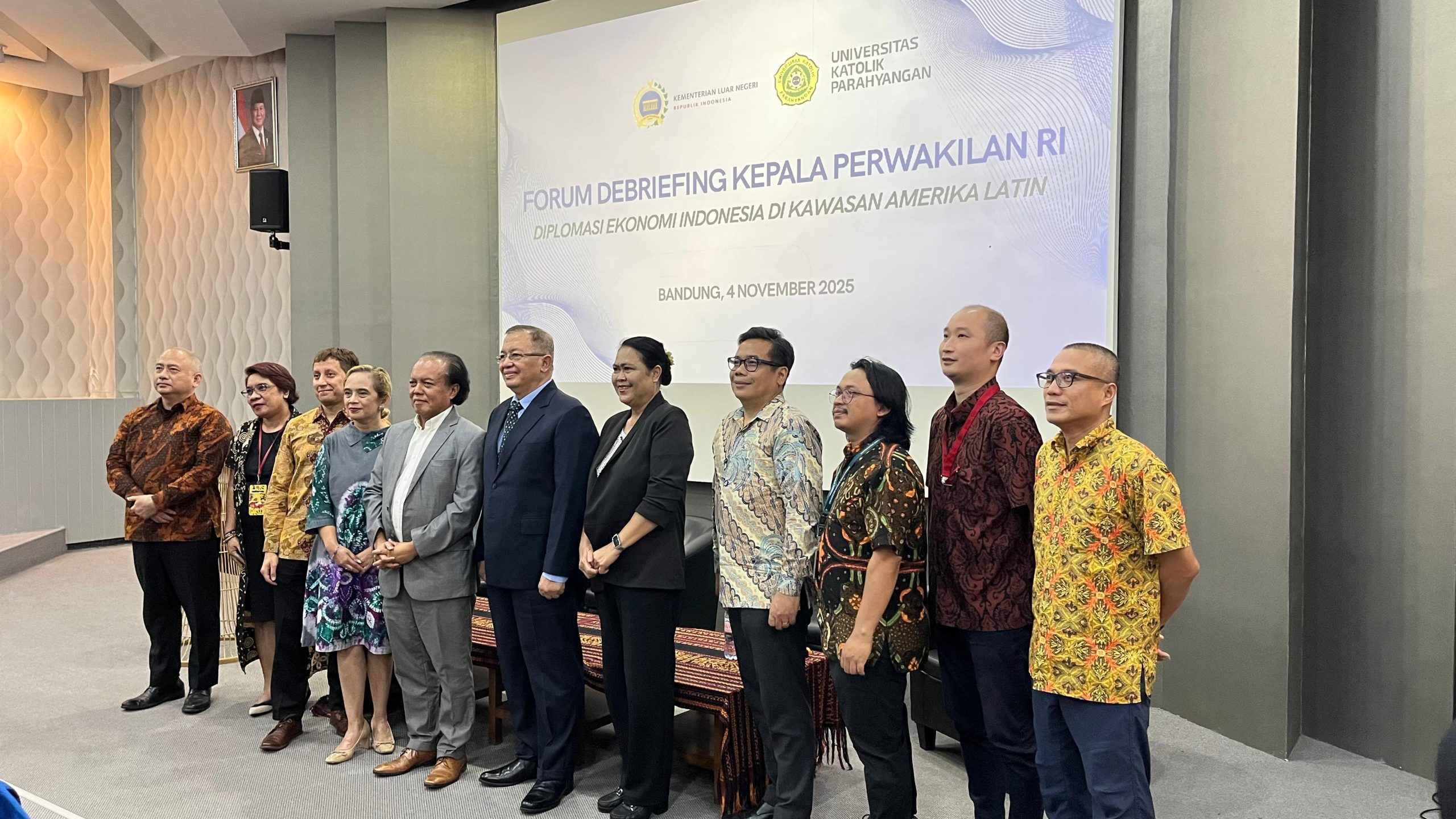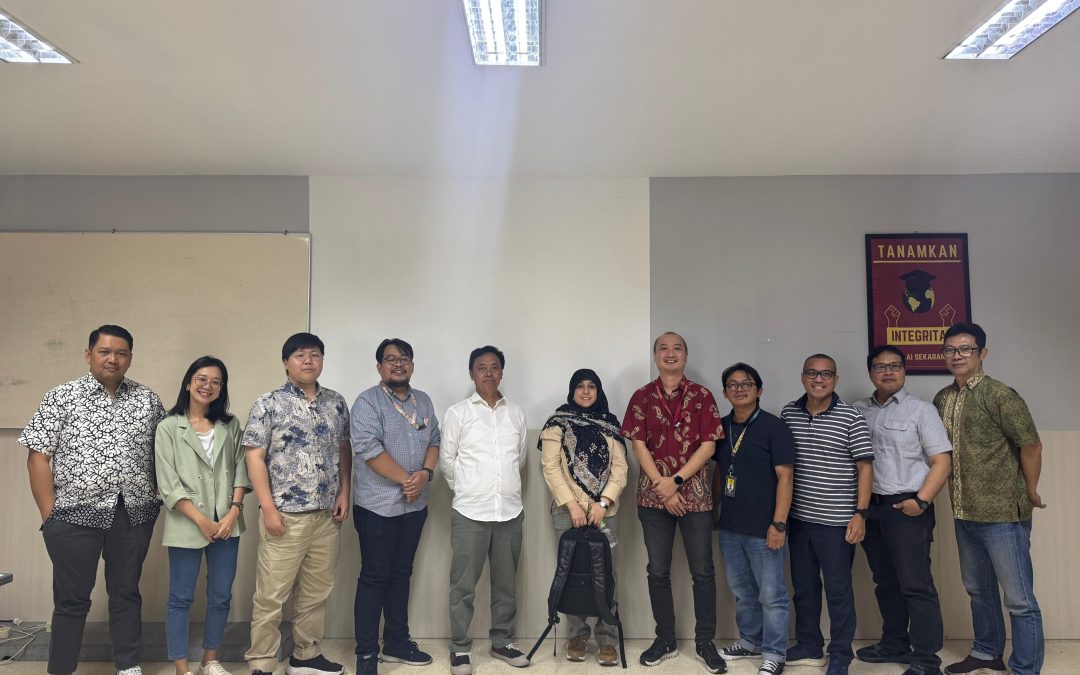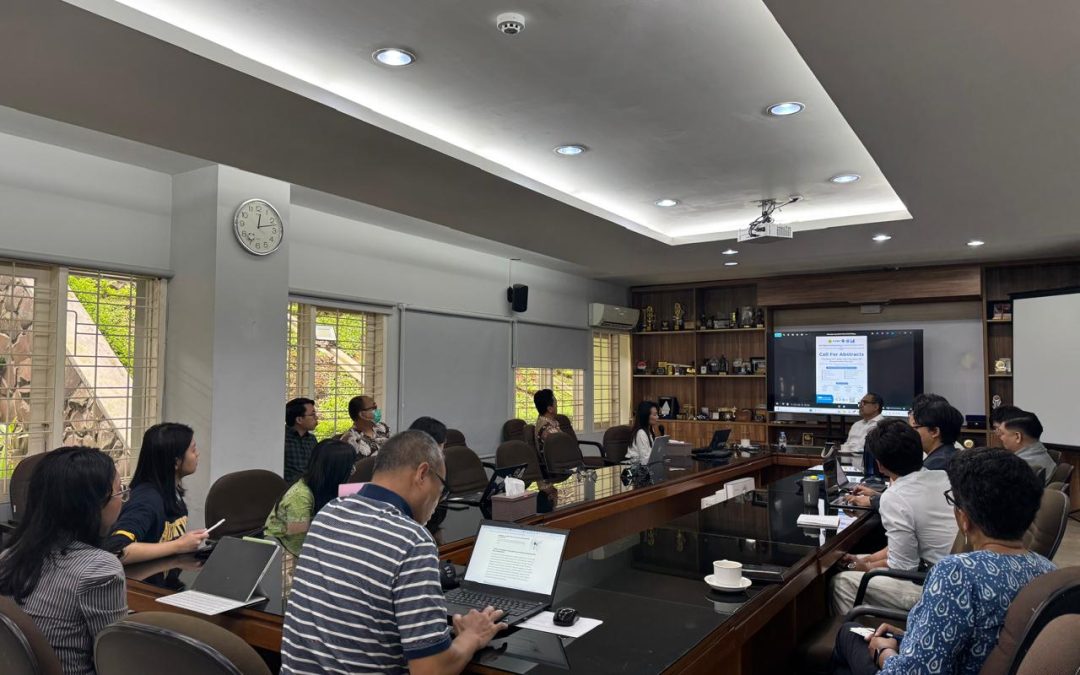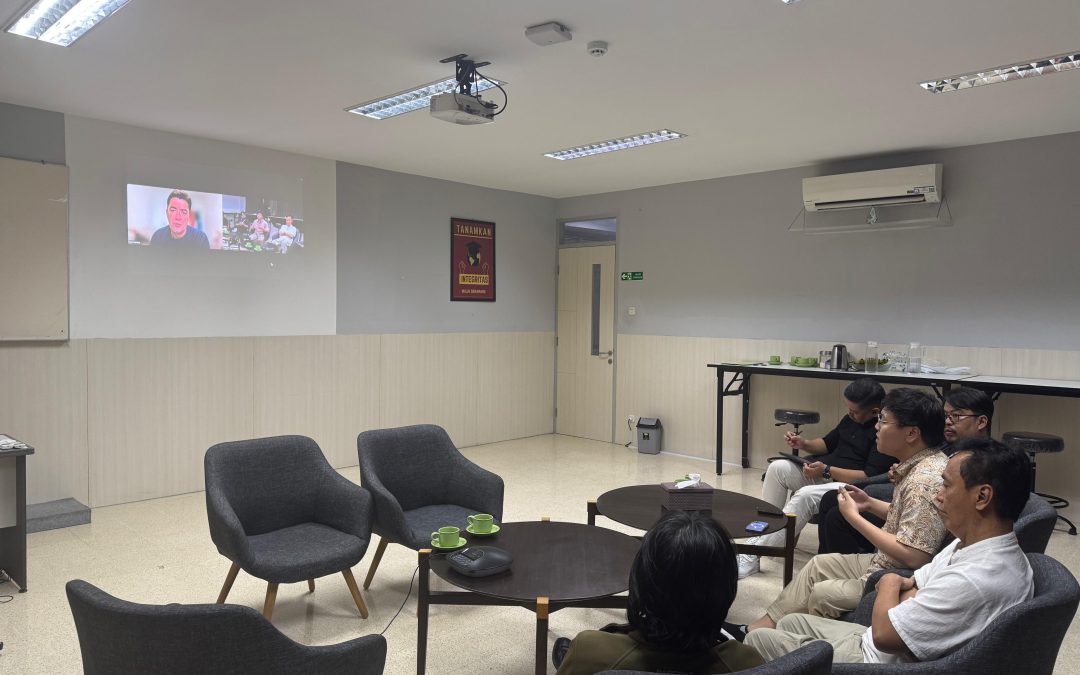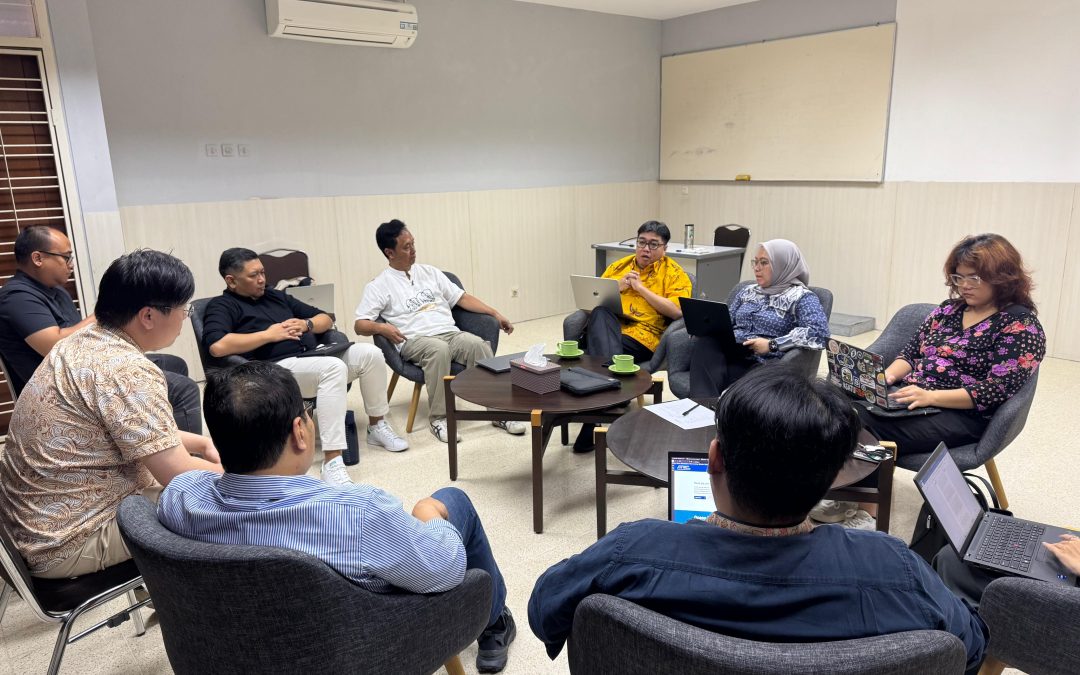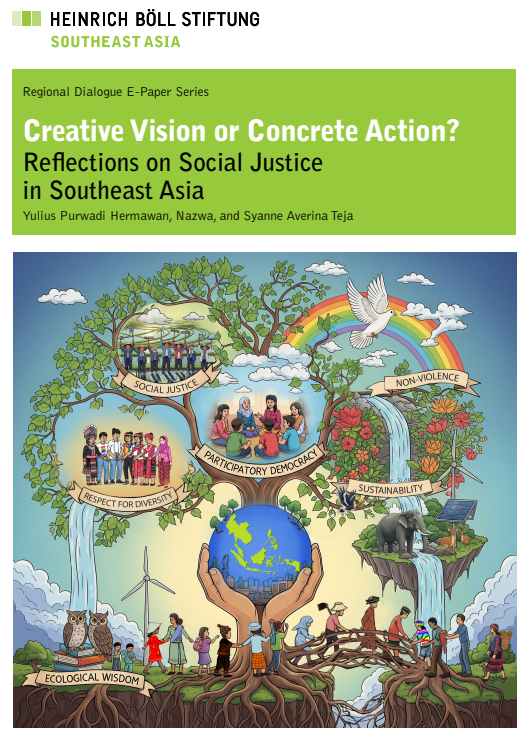Bandung, November 4, 2025 – The Foreign Policy Strategy Agency (BSKLN) of the Ministry of Foreign Affairs of the Republic of Indonesia, in collaboration with Parahyangan Catholic University (Unpar) held a Debriefing Forum for the Heads of Indonesian Representatives entitled “Indonesian Economic Diplomacy in the Latin American Region”. This activity took place in a hybrid manner in the Audio Visual Room, FISIP Unpar, with the presence of two Indonesian Ambassadors to the Latin American region, namely Ambassador Muhammad Anshor (Republic of Chile, 2019–2025) and Ambassador Major General TNI (Ret.) Dr. Imam Edy Mulyono (Bolivarian Republic of Venezuela, 2020–2025). This forum was led by Dr. Leonard F. Hutabarat, Ph.D. (Director of International Politics and Security of BSKLN) as moderator, to identify new directions for Indonesian economic diplomacy in the Latin American and Caribbean region in the face of global geopolitical dynamics, while also evaluating the strategic achievements of Indonesia’s diplomatic mission in the region.
The event began with remarks from Mr. Muhammad Takdir, Head of the Foreign Policy Strategy Agency (BSKLN) of the Ministry of Foreign Affairs of the Republic of Indonesia. In his presentation, he emphasized that Latin America and the Caribbean region hold significant potential for strengthening the Indonesian economy, particularly given its population of over 650 million and its growing market demand.
However, despite these significant opportunities, Mr. Takdir also warned of a number of challenges that must be addressed. He highlighted currency volatility, high inflation, and inconsistent economic policy changes, which are major obstacles to expanding Indonesia’s economic cooperation in the region. Furthermore, the dependence of most Latin American countries on single-commodity exports also creates economic vulnerabilities that must be strategically considered.
He further explained that political risks and fluctuating regulations are among the most crucial factors. Complicated customs and logistics systems, coupled with Indonesia’s considerable geographic distance, often result in high shipping costs and time-consuming licensing processes. Furthermore, limited market access due to protectionist policies in several countries remains a real challenge for Indonesian exporters.
In providing a comparison, Mr. Takdir cited Chile as an example of a country with relatively high political stability, as reflected in the risk indicator at level 4. In contrast, Venezuela faces a state legitimacy risk crisis approaching a scale of 10, triggered by a prolonged political and economic crisis, despite having the largest oil reserves in the world.
He further highlighted that Venezuela has become a flashpoint in the geopolitical rivalry between China and the United States. The increased US military presence in the Caribbean demonstrates how geopolitical dynamics in the region influence regional stability. In response, Mr. Takdir introduced the term ” kinetic diplomacy,” a form of diplomacy involving the use of military force to strengthen political positions in the region.
Ambassador Muhammad Anshor: Economic Diplomacy Requires an Adaptive and Multi-Level Approach
The next session featured a presentation by the Indonesian Ambassador to Chile, Muhammad Anshor, who provided an in-depth overview of Indonesia’s economic diplomacy strategy in Latin America and the Caribbean. In his presentation, he described the region as ” unique, challenging, and full of opportunities ” for expanding Indonesia’s economic cooperation. According to Ambassador Anshor, geographical distance should not be an obstacle but rather a catalyst for more creative and adaptive innovation in economic diplomacy.
He further emphasized the importance of a deep understanding of the regional context through various dialogue mechanisms, one of which is the Latin American and Caribbean (LAC) forum. He stated that this forum is a strategic platform for understanding economic dynamics, trade policies, and market preferences in Latin American and Caribbean countries. He cited Chile as an example, as a country with a progressive free trade policy and high openness to cross-regional partnerships, making it a potential partner for Indonesia in expanding its economic network in the region.
In the context of regional politics, Ambassador Anshor emphasized that political fluctuations are inherent in Latin America, but stability can be built through a mutually beneficial economic approach. He linked this to the principle of good neighborhood policy, a policy that emphasizes economic cooperation as a means of fostering political stability and trust between nations.
Ambassador Anshor also highlighted the importance of MERCOSUR, the largest economic bloc in South America, which he said requires a tiered and individualized engagement strategy with each member country. This is crucial for Indonesia’s economic diplomacy to be more effective, taking into account the differences in economic capacity and domestic political dynamics in each country.
As a concrete achievement, Ambassador Anshor cited the Free Trade Agreement ( FTA ) between Indonesia and Chile, signed in 2022, as a significant milestone in Indonesia’s economic diplomacy. The agreement not only covers trade in goods and services but also opens up new opportunities in tourism and investment. He believes this cooperation model could serve as a template for establishing FTAs with other countries in the Latin American region.
Ambassador Imam Edy: Venezuela, Strategic Energy, and Navigation Amid Geopolitical Pressure
The presentation was continued by the Ambassador of the Republic of Indonesia to Venezuela, Major General TNI (Ret.) Dr. Imam Edy Mulyono, who raised the theme “Indonesia’s Economic Diplomacy Amidst the Geopolitical Conditions of the Latin American Region.” In his presentation, he highlighted the complexity of economic and political dynamics in Venezuela, a country with extraordinary natural resource wealth, especially in the oil and gas sector.
Ambassador Imam Edy explained that this enormous potential has not been fully utilized because Venezuela is facing prolonged hyperinflation, a high debt burden, and economic sanctions imposed by the United States. The combination of these three factors has hampered domestic economic activity and weakened the country’s ability to maintain fiscal and social stability. He further explained that the economic cooperation landscape in Venezuela is now dominated by China and Russia, two strategic partners exploiting the gap created by the United States’ reduced involvement in the region. Data shows that the US only distributes around 1.7% of its aid to 33 countries in Latin America, a figure that confirms that the region is no longer a priority for US foreign policy.
In this context, Indonesia has an opportunity to expand its energy and natural resource-based economic diplomacy, particularly through a pragmatic and non-confrontational approach. According to Ambassador Imam Edy, China plays a dominant role in Venezuela through technology investment, infrastructure development, and military cooperation, while Russia focuses more on financial support, defense diplomacy, and the dissemination of strategic information to strengthen its influence in the region. Meanwhile, Iran plays a role through the OPEC network and the ALBA cooperation bloc, utilizing the common enemy framing narrative against the United States to strengthen political solidarity among Latin American countries.
As a concrete contribution from Indonesia, Ambassador Imam Edy highlighted the successful signing of a Memorandum of Understanding (MoU) in the energy sector between Indonesia and Venezuela for the 2020–2025 period, facilitated by the Ministry of Energy and Mineral Resources (ESDM). This collaboration is considered strategic and visionary, given Venezuela’s relatively low oil production costs, making it a significant alternative for strengthening Indonesia’s national energy security in the future.
Academic Analysis and Strategic Direction of Indonesian Economic Diplomacy
As a discussant, Prof. Dr. Suke Sukawarsini Djelantik explained that economic diplomacy is “the utilization of economic resources as a tool to achieve political and foreign policy goals,” whether through exports and imports, investment, free trade agreements, technology transfer, or foreign aid. In the context of Latin America, Prof. Suke assessed that this region is still underexposed in Indonesian foreign policy, even though it has high strategic value in the global geoeconomic context. These instruments can be realized through various channels, such as export-import activities, investment, free trade agreements (FTAs), technology transfer, and international development assistance.
In Prof. Suke’s perspective, Latin America and the Caribbean remain underexposed in Indonesian foreign policy. Yet, this region holds significant geoeconomic and geopolitical significance, particularly amidst changes in the global economic power structure. He called the region a ” new frontier ” for Indonesian economic diplomacy, not merely a promising potential market but also a strategic arena where major powers like the United States, China, and Russia are competing to expand their economic and political influence.
Beyond the economic aspect, Prof. Suke emphasized the importance of a soft diplomacy approach to building Indonesia’s trust and credibility in the eyes of Latin American countries. Instruments such as cultural exchanges, educational cooperation, scholarship programs, and community-based public diplomacy are believed to strengthen people-to-people connections, which form the foundation for long-term economic relations.
The forum concluded with closing remarks by Mr. Vahd Nabyl Mulachela, who emphasized that Indonesia needs to strengthen its role as a bridge builder among Global South countries, namely as a bridge connecting the interests of developing countries to fight for a more inclusive, just, and sustainable global economic order.
Documentation:
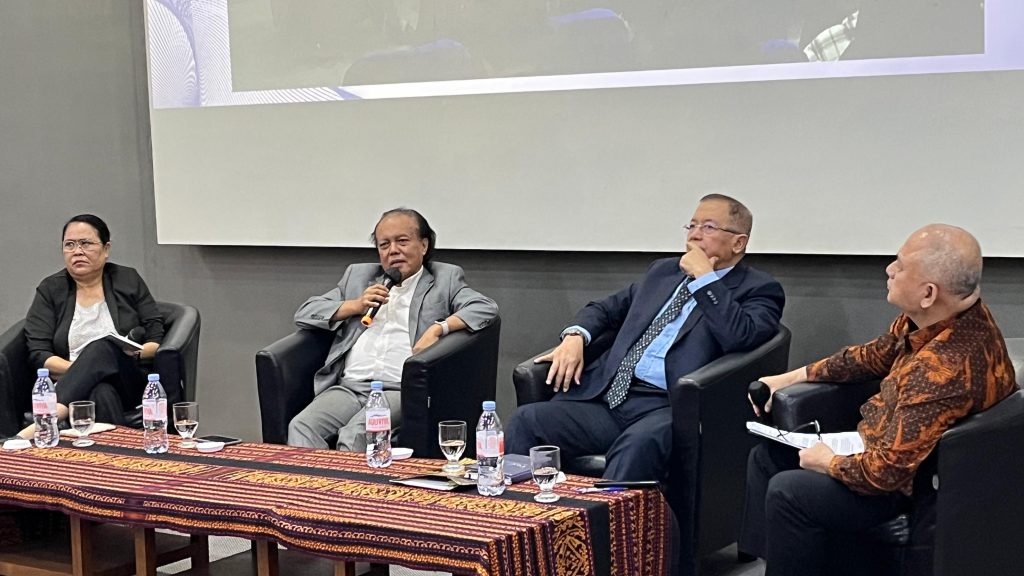
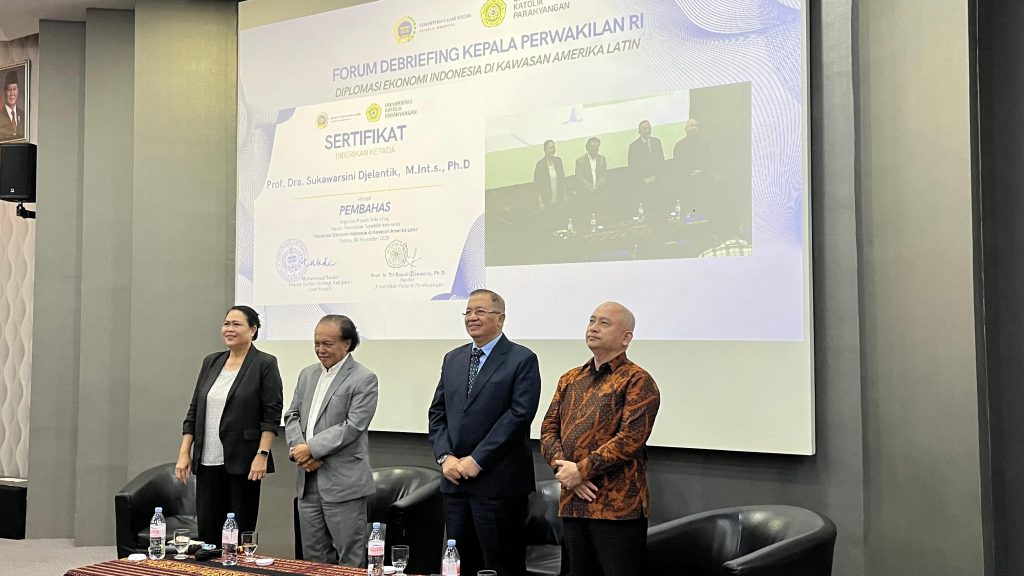
Author : Nazwa

